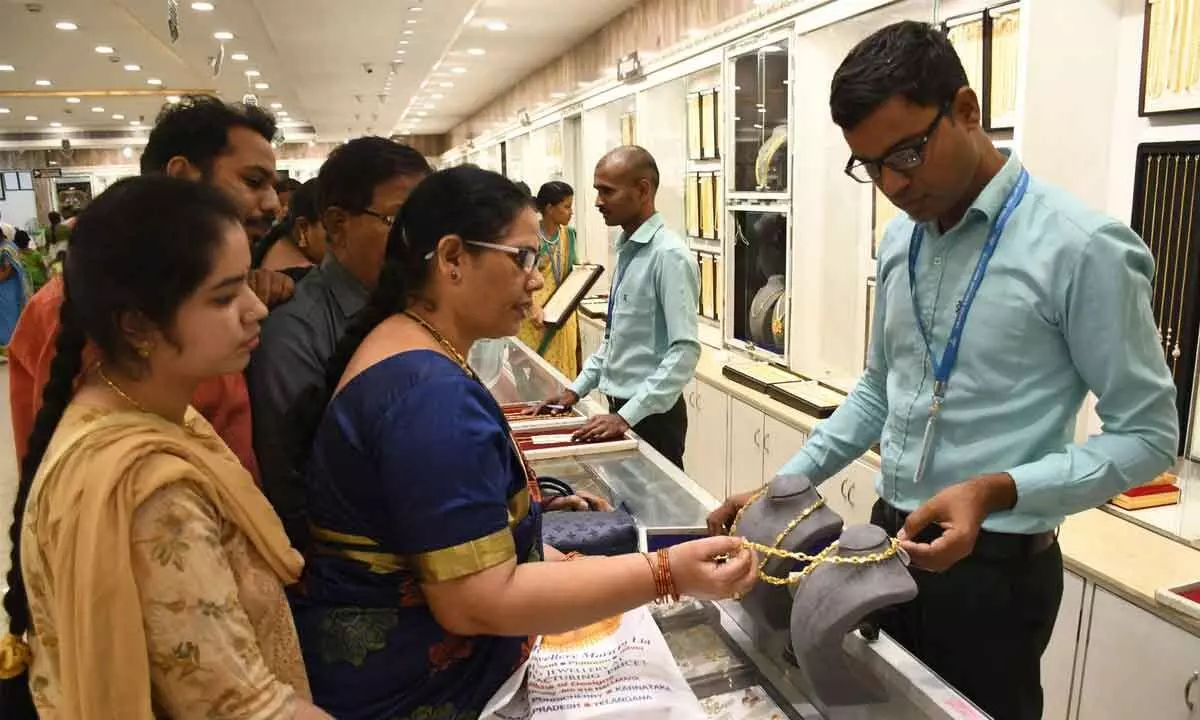Hyderabad: Gold shops flourish as currency exchanges

- Limited response at banks; individuals flock to gold shops for exchange
- Jewellery shops charge premium for accepting Rs 2,000 notes
- Real estate sector exploits gold shops for high value note transactions
Hyderabad: Realtors and businessmen have discovered an alternative method of dispensing Rs 2,000 notes by capitalising on the increasing sales in gold and jewellery shops within the city in recent days.
While the Reserve Bank of India (RBI) has permitted individuals to exchange Rs 2,000 notes at its 19 regional offices and banks, the response has been lacklustre, with few people seen at banks in the past two days. However, individuals in possession of these high-value notes are flocking to gold and jewellery shops to make their exchanges. This trend is particularly prominent among realtors and private business owners who are eager to divest themselves of the larger denomination notes.
According to a jewellery shop owner in Pot Market, Secunderabad, some of the jewellery shops are charging a premium of Rs 65,000 (which is Rs 3,000 more than the actual market price) for accepting the Rs 2,000 notes. If customers do not wish to receive change in the form of smaller bills, they are required to pay the additional amount. By choosing this route, they can avoid the inconvenience of visiting banks, undergoing scrutiny, and submitting documents. Purchasing gold has become a preferred method for them.
The real estate business often involves significant cash transactions, with Rs 2,000 notes commonly used as a means of payment. It is an open secret that the actual value of lands exceeds the government-appraised value, facilitating substantial cash transactions and reducing the tax burden, as stated by realtor Nileesh Singh from Manikonda.
Gold businesses have the advantage of depositing any amount of money into their current accounts, similar to fuel stations and wine shops. Further, since gold is purchased in bulk and taxes are already paid to the government by these shops, there is minimal opportunity for tax evasion. It presents a dual scenario for businesses. “We purchase in bulk, and the sale depends on market rates. If the market rate drops, gold shops face losses, but if prices increase, they generate profits,” explained Prem Agarwal, a bullion market dealer. However, he noted that the rush to exchange notes in the market is not as significant as during the demonetisation period.














